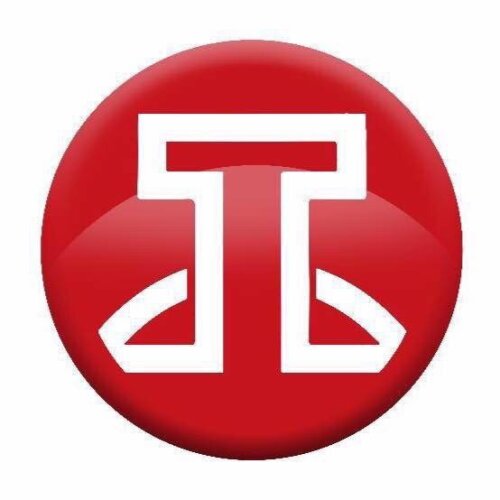Best Renewable & Alternative Energy Lawyers in Haiphong
Share your needs with us, get contacted by law firms.
Free. Takes 2 min.
List of the best lawyers in Haiphong, Vietnam
About Renewable & Alternative Energy Law in Haiphong, Vietnam
Haiphong, as one of Vietnam’s key port cities and industrial hubs, is rapidly developing its renewable and alternative energy sector. This includes the promotion and implementation of solar, wind, biomass, and other sustainable energy sources to meet growing energy demands and support environmental sustainability. The Vietnamese government, including local authorities in Haiphong, has introduced several policies and legal frameworks to encourage investment in these sectors. Laws and regulations are continuously evolving to facilitate foreign and domestic investments, support energy transition programs, and ensure environmental protection.
Why You May Need a Lawyer
Navigating renewable and alternative energy projects in Haiphong often involves complex legal and regulatory considerations. You may require legal assistance in situations such as:
- Understanding eligibility and approval processes for renewable energy projects
- Negotiating land leases or purchase agreements for project development
- Obtaining permits for construction and operation of renewable energy facilities
- Complying with environmental assessment and protection regulations
- Drafting and reviewing Power Purchase Agreements (PPAs) with EVN or other buyers
- Navigating tax incentives and government subsidies
- Resolving disputes with contractors, suppliers, local authorities, or partners
- Ensuring compliance with labor, safety, and local community engagement requirements
Legal professionals can help you anticipate challenges, prepare required documentation, and protect your interests throughout the lifecycle of your renewable or alternative energy project.
Local Laws Overview
In Haiphong, renewable and alternative energy activities are guided by national and local regulations. Key aspects include:
- Investment Licensing: Investors must comply with the Law on Investment and may need approval from Haiphong's People’s Committee for certain projects.
- Land Use: Projects must align with the Land Law, including provisions on land use rights, conversion of agricultural or forest land, and compensation for affected parties.
- Environmental Protection: Assessment reports and compliance with the Law on Environmental Protection are mandatory, especially for larger scale projects.
- Electricity Law: This sets out the requirements for generation, connection to the grid, and power purchase arrangements.
- Incentives and Tariffs: Tariff mechanisms for solar, wind, and biomass energy are established via government decisions, often providing feed-in-tariffs or other incentives.
- Local Procedures: Haiphong has its own procedures for administrative approvals, which must be followed in addition to national laws.
The interplay between national and local requirements means it’s essential to stay updated and seek guidance on compliance for each project phase.
Frequently Asked Questions
What types of renewable energy projects are most common in Haiphong?
Solar projects, including rooftop and utility-scale installations, are increasing rapidly. There is also interest in wind and waste-to-energy initiatives due to Haiphong’s geographical and industrial profile.
Are there specific incentives for renewable energy projects in Haiphong?
Yes, the Vietnamese government offers incentives such as import duty exemptions, corporate income tax reductions, and preferential feed-in tariffs. Local support may include administrative assistance and land incentives.
What permits are required for a renewable energy project in Haiphong?
Typical permits include investment registration, construction permits, environmental impact assessments, and power operation licenses. The exact permits depend on the project type and size.
How does the power purchase agreement (PPA) process work?
The PPA is usually signed with the state-owned utility (EVN). Terms are regulated by national laws, including pricing, duration, and payment mechanisms. Professional legal advice helps ensure favorable terms.
Can foreign investors participate in renewable energy projects?
Yes, foreign investors are welcome and can own renewable energy projects, subject to Vietnamese investment laws and local requirements.
How is land for renewable energy projects acquired or leased?
Land acquisition or leasing follows the Land Law and involves negotiation with local authorities or private owners. Compensation and resettlement may be required if communities are affected.
What environmental compliance is required?
Environmental Impact Assessment (EIA) is mandatory for most projects, along with ongoing monitoring and reporting during operations, as per the Law on Environmental Protection.
Are there restrictions on connecting renewable energy to the grid?
Projects must comply with technical standards for grid connection. Grid capacity in certain areas may be limited, so early consultation with the local power company is essential.
Can individuals install rooftop solar panels at their home or business?
Yes, individuals and businesses can install rooftop solar systems. It usually requires notifying the local electricity authority and may qualify for net-metering or selling surplus electricity.
What are the main challenges for developers in this sector?
Common challenges include fluctuating feed-in tariff policies, administrative hurdles, land clearance issues, connection to the national grid, and ensuring consistent long term support from local authorities.
Additional Resources
If you need more information or support regarding renewable and alternative energy in Haiphong, consider contacting:
- Haiphong Department of Industry and Trade
- Vietnam Electricity (EVN) - Northern Power Corporation
- Haiphong People’s Committee - Investment and Planning Division
- Vietnam Ministry of Industry and Trade (MOIT)
- Vietnam Business Forum (VBF) - Working Group on Energy
- Local Environmental Protection Agencies
- Renewable Energy Associations in Vietnam
- International organizations such as GIZ and World Bank offices in Vietnam
Next Steps
If you are considering developing or investing in renewable or alternative energy in Haiphong, Vietnam, consider the following steps:
- Clearly outline your project goals and budget.
- Gather information on local regulations and incentives relevant to your project type.
- Engage with relevant local government departments early in your planning process.
- Consult with a qualified lawyer who has experience in renewable and alternative energy projects in Vietnam.
- Prepare all necessary documentation and ensure compliance with investment, construction, environmental, and labor laws.
- Monitor policy updates and maintain communication with local authorities for ongoing compliance and support.
Seeking legal advice from the start can help you avoid delays, minimize risks, and successfully implement your renewable energy project in Haiphong.
Lawzana helps you find the best lawyers and law firms in Haiphong through a curated and pre-screened list of qualified legal professionals. Our platform offers rankings and detailed profiles of attorneys and law firms, allowing you to compare based on practice areas, including Renewable & Alternative Energy, experience, and client feedback.
Each profile includes a description of the firm's areas of practice, client reviews, team members and partners, year of establishment, spoken languages, office locations, contact information, social media presence, and any published articles or resources. Most firms on our platform speak English and are experienced in both local and international legal matters.
Get a quote from top-rated law firms in Haiphong, Vietnam — quickly, securely, and without unnecessary hassle.
Disclaimer:
The information provided on this page is for general informational purposes only and does not constitute legal advice. While we strive to ensure the accuracy and relevance of the content, legal information may change over time, and interpretations of the law can vary. You should always consult with a qualified legal professional for advice specific to your situation.
We disclaim all liability for actions taken or not taken based on the content of this page. If you believe any information is incorrect or outdated, please contact us, and we will review and update it where appropriate.












